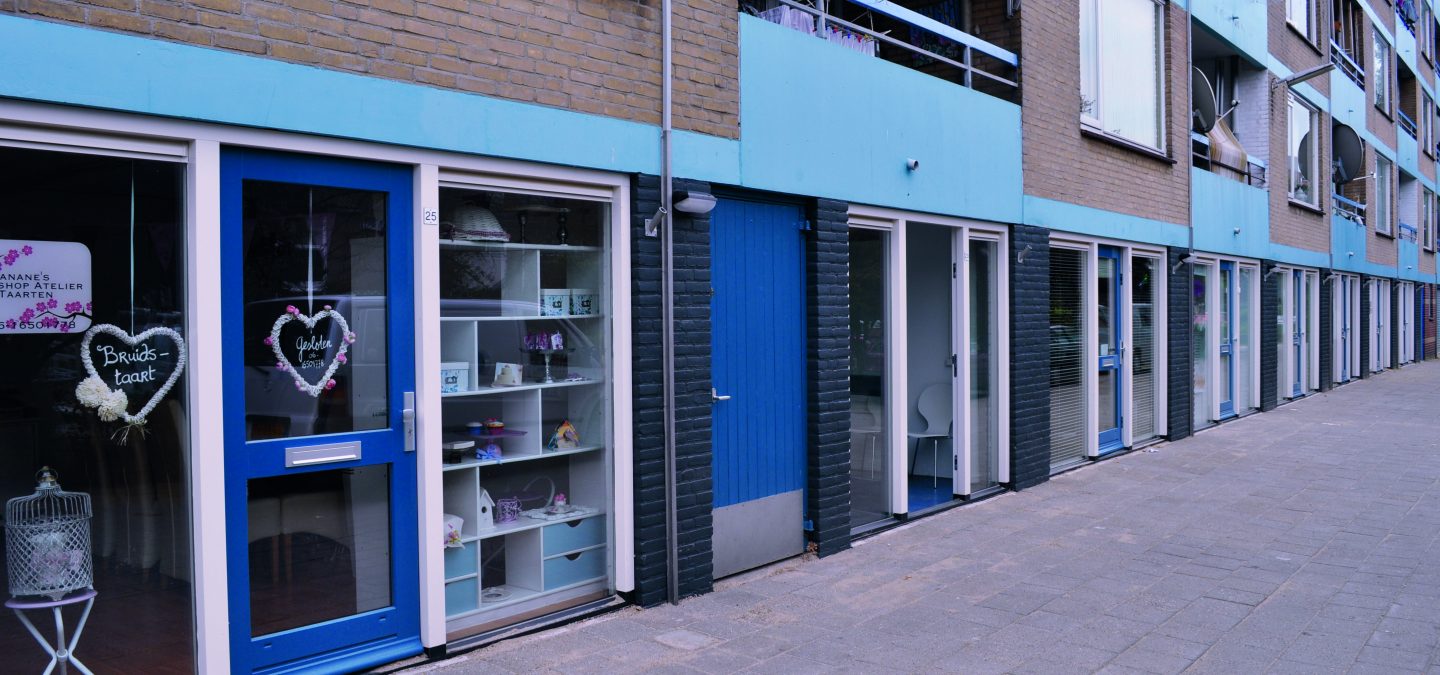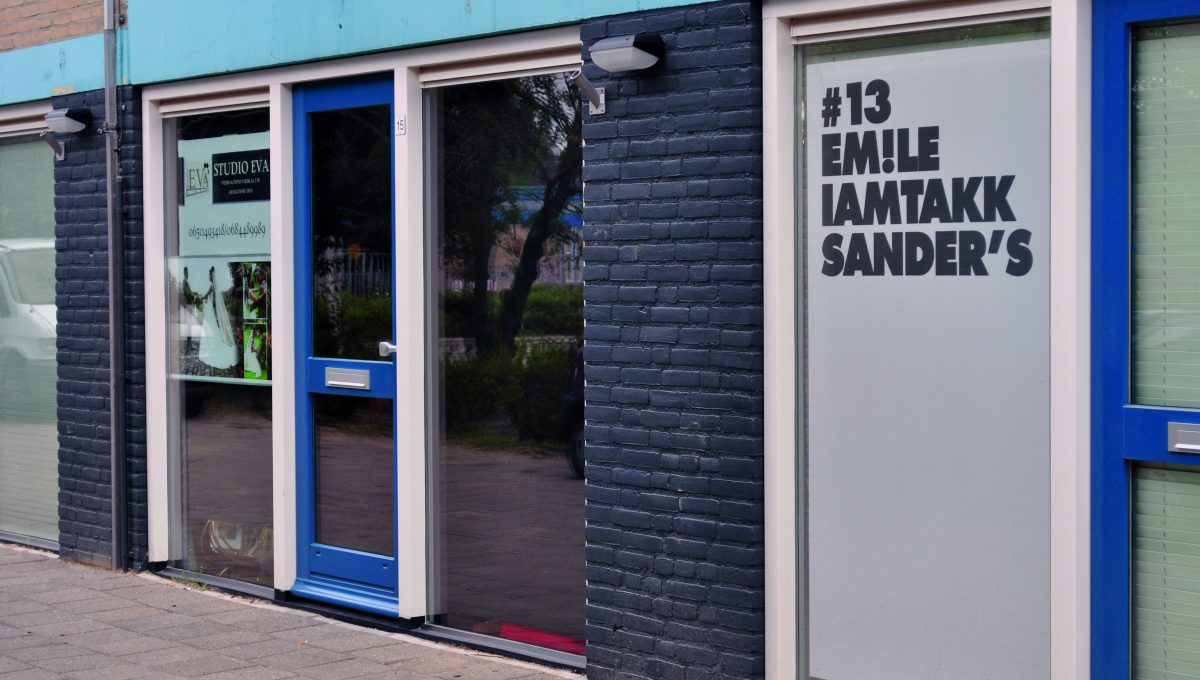
Keep up with our latest news and projects!

In the 1950s and 1960s many low-rise apartment buildings (‘portiekflats’) were built in the Netherlands: three floors high with small dwellings. Some of these buildings had a plinth with local shops like a supermarket, a bakery, or a hairdresser. Nowadays it is visible that this traditional function of the commercial plinth has vanished. Changing circumstances led to bankruptcy of many small shop owners. Commercial activities dissipated, and new not to the neighbourhood related activities (like phone shops) have taken their place. The plinth is poorly maintained and degradation of the plinth is visible.
A similar situation is seen at the storages and garages at the ground floor of many other portiekflats. Many of these have closed façade, which brings feelings of insecurity, and thus vitality decreases. This problematic situation was the departure point of a group of professionals working in real estate with different backgrounds in Pluk, an organization that focuses her work on complex social issues. How to bring back economic and social vitality in these neighbourhoods with relatively easy applicable solutions? A learning journey to Liendert in Amersfoort brought new insights.
Liendert is a typical post-war neighbourhood in Amersfoort, a Dutch city with 150 000 inhabitants. The neighbourhood (7 000 inhabitants) can be characterized by: low incomes, relatively high rate of unemployment, over 50% social housing, perception of degradation by inhabitants and feelings of insecurity. A part of the neighbourhood called ‘De Horsten’ has a bad name in particular. Liendert is one of the neighbourhoods in Amersfoort that gets special attention from the government. A lot of social and physical investments have been planned. Emphasis in Liendert has consciously been on the qualities and strengths of the district and its residents, instead of only a focus on their problems. Potentially the neighbourhood ‘de Horsten’ is a top-location with its location adjacent to a large park. In addition the neighbourhood has a strong social network and lots of entrepreneurial residents.

One initiative was taken up by de local housing corporation in association with the municipality of the city Amersfoort and Willem van Laar. They concluded that a lot of small entrepreneurs living in the neighbourhood are often less visible because they run their small businesses at home. Amongst them are starters with a need for a small space with a flexible contract and some basic facilities. To rent private space is expensive and contracts are often fixed for several years; a serious financial risk for starters. Based on research in the neighbourhood and amongst entrepreneurs the idea came to rebuild the storage and garage boxes into small spaces for entrepreneurs for a low rent. Thus combining the need for local entrepreneurial spaces with a more open and vivid plinth.
The local housing corporation started with turning seven garage boxes into commercial spaces (± 20 m2 with one shared toilet). The corporation got over a hundred requests for space. A few criteria were used to select seven of them: relatively young people, already living in the neighbourhood and who are starters and a role model for others in the neighbourhood. Their business varies from graphic design and IT solution, hairdressing to a jewellery case with retail. It is also possible for students to subscribe and start a business during their study.
The indicated price for renovation was € 20 000 per garage box and was subsidized by the Ministry of Social Housing. The rent for these spaces is low and comparable to the rents for a garage box: € 65 a month. The boxes are simple and therefore easy to adjust to the needs of the tenant. The contract is flexible: the term of notice is only one month, and the maximum duration of the rent is two years. In this way it really offers local starters an incentive to develop their businesses to maturity and after two years they can take new steps.
Interested? Join The City At Eye Level and share your story!
Discover moreThe plinth has become more vivid, open and friendly by turning it into commercial units for relatively low costs. It appears to provide in a need for payable basic units with a flexible contract. It enables entrepreneurs living in the neighbourhood to start a business with a smaller chance of debts by failure. In combination with additional measures like renovation, camera surveillance and free business advice from local businessman it is a boost for the liveability and neighbourhood economy at relatively low costs.